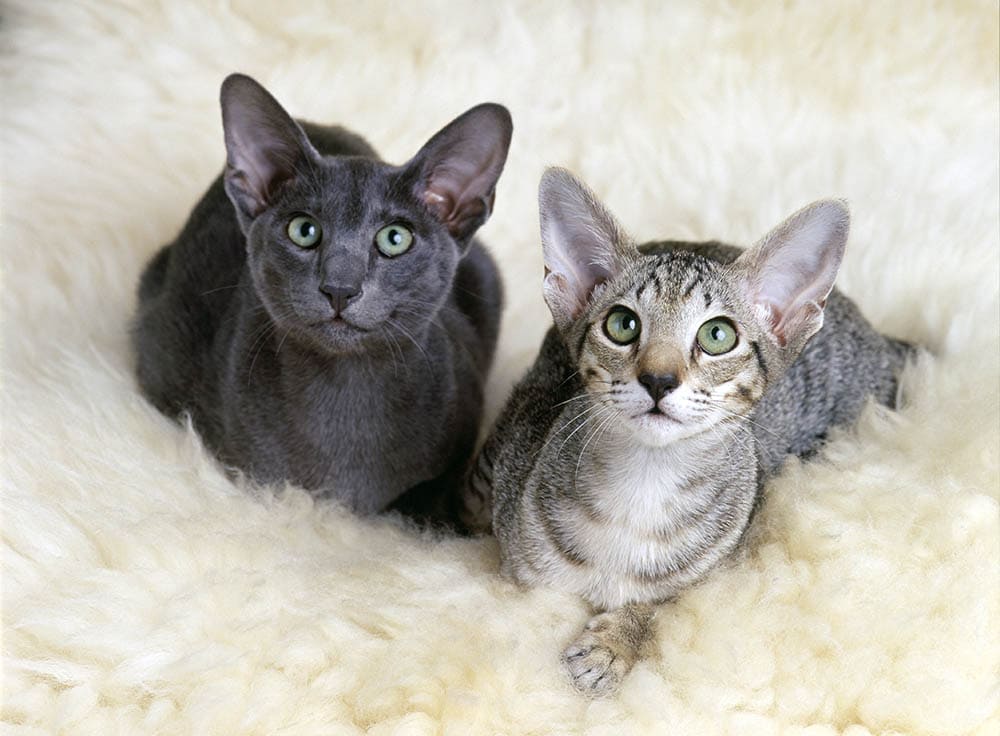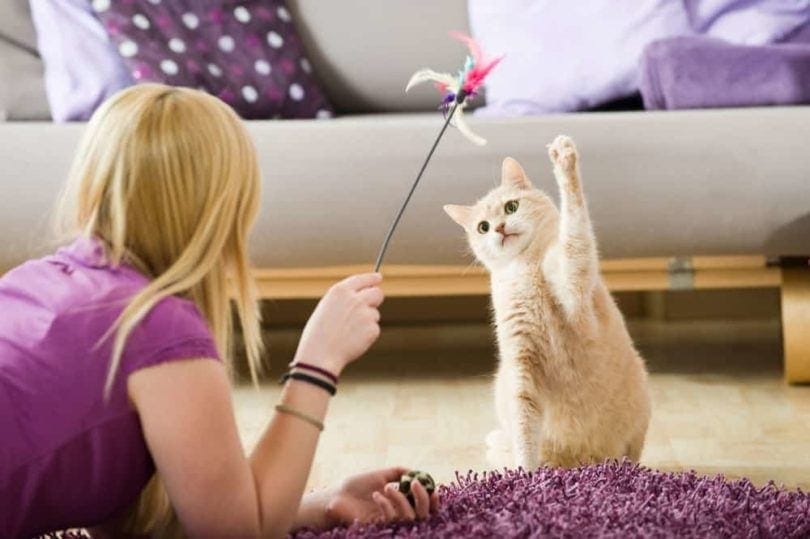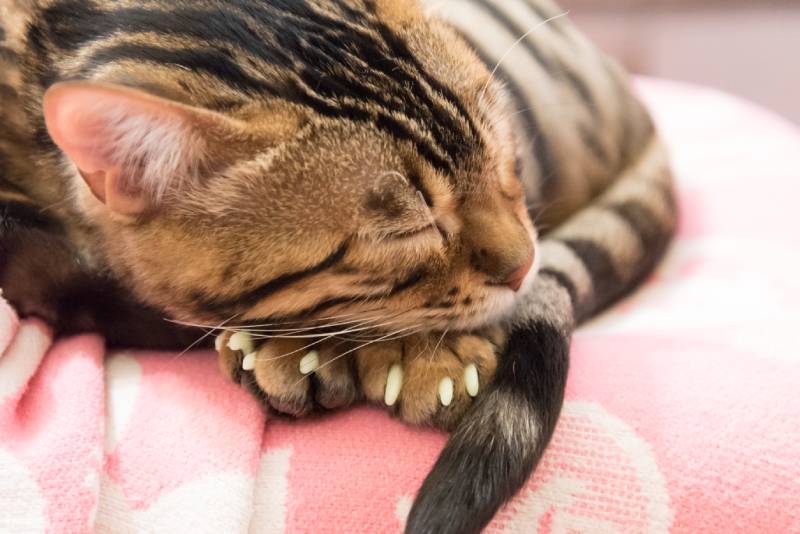How Long do Bombay Cats Live? Average Lifespan, Data & Care Guide
By Lorre Luther
Updated on
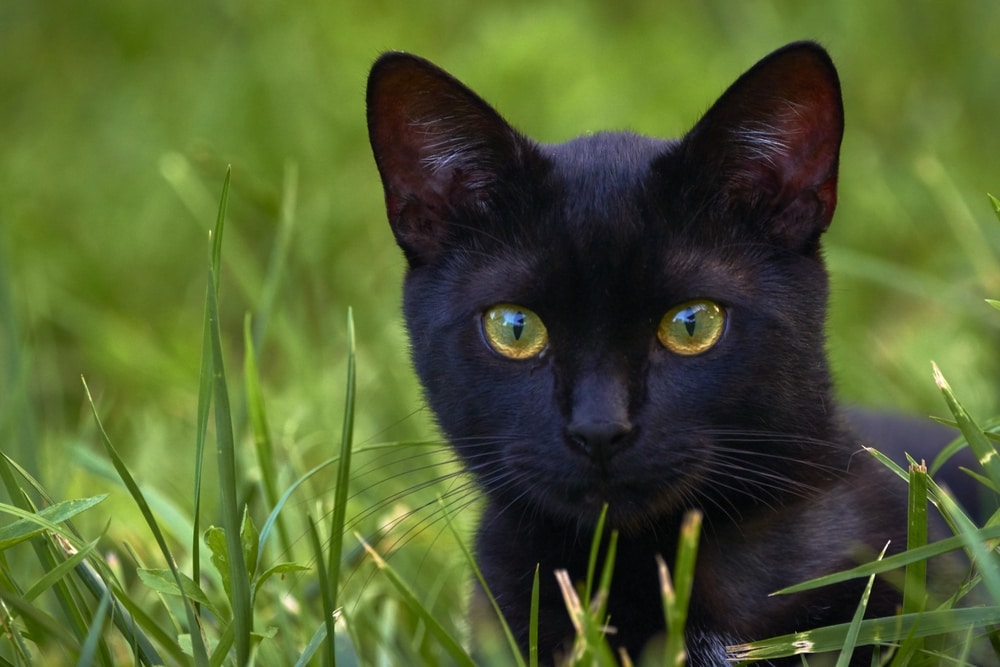
Click to Skip Ahead
If you’re thinking about adding a pedigree cat to your family, there are several factors to consider when determining if a breed is right for your needs, including size, personality, activity levels, and lifespan. Bombay Cats weigh 6 to 11 pounds and have short, soft black fur and yellowish eyes. They’re generally active, and most thrive in homes where they can spend lots of time interacting with their favorite people. Bombay Cats are vocal and are usually happy to carry on conversations with people. Bombay cats often live for 15 years or more.
Bombay Cat Average Lifespan
Bombay Cats generally live for 12 to 15 years, but it’s not unheard of for some Bombay Cats to reach 20 years old. The cat’s diet, health care, breed, and lifestyle can also impact how long they live. High-quality food and regular veterinary check ups go a long way toward keeping cats healthy and extending their lives, and some breeds, such as Ragdoll Cats, regularly make it into their 20s. Indoor cats generally live far longer than outdoor pets, and most outdoor cats only live for 2 to 5 years.
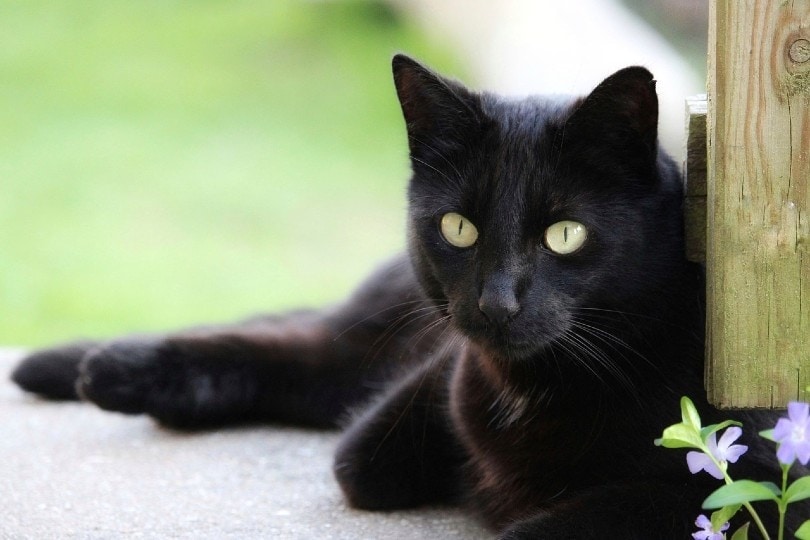
How to Care for Your Bombay Cats for a Long Lifespan?
Bombay Cats are relatively healthy, but we have a few tips on caring for your cat so they can live a long, healthy life.
1. Feeding & Diet
Bombay Cats don’t have any special dietary requirements or needs. However, your Bombay will benefit from high-quality, protein-rich food. The American Association of Feed Control Officials (AAFCO) puts its seal of approval on brands that meet the dietary needs of cats, but you can also ask your veterinarian for brand recommendations.
Cats’ nutritional requirements change over their lifetimes. Kittens require different food to grow than adult cats, and sedentary indoor pets often need fewer calories than energetic cats that get more exercise.
Ensuring your cat eats an appropriate amount of food to prevent weight gain can go a long way toward reducing the risk of your pet developing chronic diseases such as arthritis and diabetes, often seen in overweight pets.
2. Environment
Bombay Cats generally thrive in environments with plenty of toys and activities to keep them busy. Toys designed for solo play allow energetic cats to blow off steam on their own, but teasers and laser pointers are excellent choices when you’re interested in interacting with your cat. You can also buy food puzzles to get your Bombay moving and give them a fun problem to solve.
Bombay cats, like all kitties, enjoy digging their claws into things, but you can protect your furniture by placing several scratching posts around your home. Some cats prefer vertical or horizontal scratchers, while others are picky about the texture. You may have to experiment to see which scratcher your cat likes. Bombays are active kitties who love to climb and observe the world from above. You can satisfy their urge to climb by purchasing a cat tree or installing platforms on your walls.
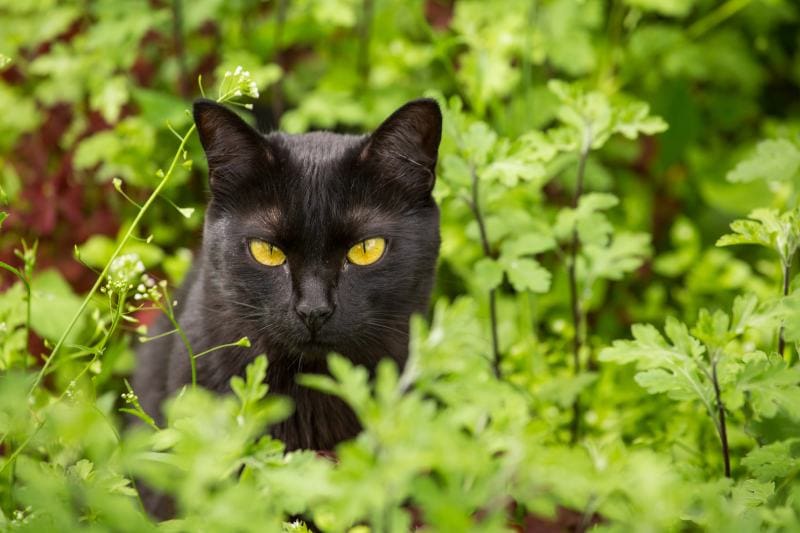
3. Grooming
Bombay Cats don’t require intensive grooming. Their short, soft coats require minimal maintenance. Like most short-haired cats, they benefit from weekly brushing sessions to keep their skin healthy and their fur nice and shiny. Frequent brushing is also an excellent way to minimize the amount of pet dander released into your home, which can sometimes improve mild allergy symptoms in some people.
They need to have their claws clipped at least every 2 to 4 weeks, especially if they live indoors. Cats who don’t have their nails regularly trimmed can develop painful ingrown claws that sometimes need veterinary treatment. Bombay cats must also have their teeth brushed a few times a week to reduce tartar and plaque, and they’ll need professional cleaning from your vet every year.
4. Healthcare
Bombay Cats are relatively rare, and they’ve only been around as a breed since the 1950s, so there’s less research-based evidence regarding breed-specific conditions to be concerned about. However, they may have a tendency to develop kidney and pancreas issues as they age. But generally, they’re considered relatively healthy cats.
Ensuring cats maintain a healthy weight is critical for their longevity. Obesity is an incredibly common preventable disease. Weighing too much puts cats at risk of developing osteoarthritis and heart disease. Measuring your cat’s food and ensuring they get at least 20 to 45 minutes of daily physical activity can help keep your buddy healthy and at an appropriate weight.
Regular veterinary checkups are the best way to keep cats healthy and catch conditions early when they’re easier to manage and treat. Kittens require multiple checkups and vaccinations, but healthy adult cats usually only need to be seen once a year. Senior pets usually need to be checked out at least twice yearly.
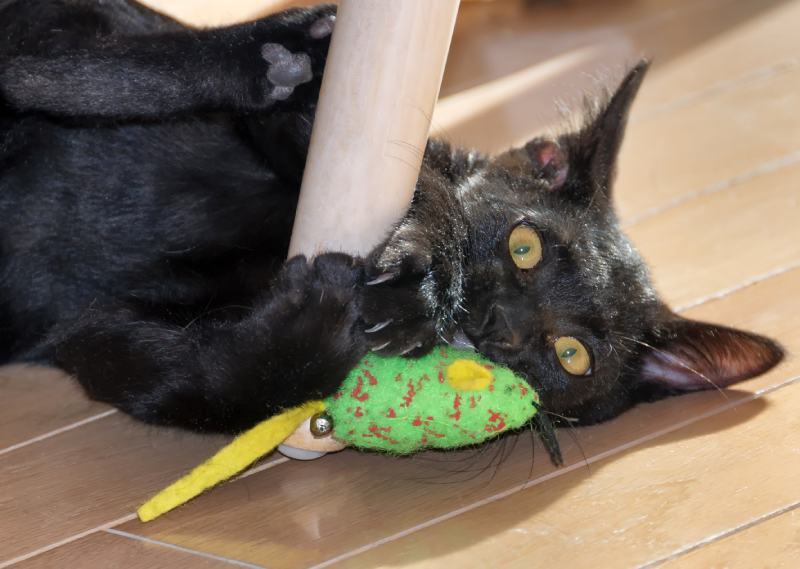
The Life Stages of a Bombay Cat
Bombay cats are kittens for about a year, and they are born blind and weigh just a few ounces. Cats are considered adults when they’re between about 1 and 10 years old. Young adult cats are energetic and spirited, but when they reach around 6 years old, they often start preferring naps to playtime.
When Bombays are older than 10 years, they’re considered senior felines. Some senior cats do just fine for several years, but others have trouble with chronic conditions and begin to have difficulty getting around.
How to Tell Your Bombay Cat’s Age
Newborn kittens quickly start to gain 1 pound per month. For example, kittens who are 2 months old often weigh around 2 pounds. Most kittens have a full set of adult teeth by the time they’re about 7 months old.
Healthy adult cats are well-groomed and alert, but they’ll develop more dental wear and tear as they age. Veterinarians can estimate an adult’s age by looking for missing or damaged teeth. A cat’s eyes, mobility, and mental state can also provide clues to their age. Some seniors have cloudy eyes and can’t move around as well due to arthritis or other joint conditions.
Conclusion
Bombay Cats generally live for 12 to 15 years, but some make it far longer. There are several factors other than the breed that can influence a cat’s longevity, including diet, preventive health care, and lifestyle. Feeding your Bombay nutritious food in appropriate amounts, ensuring they have several activities to keep them mentally and physically engaged, and meeting their basic health care needs can support your cat’s overall health and, therefore, longevity.
Featured Image Credit: Wirestock Creators, Shutterstock



